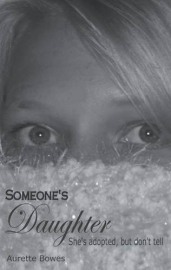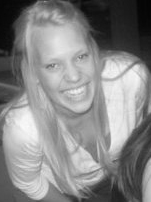Open Adoption Bloggers recently invited adoption bloggers to participate in The Interview Project as a means of getting to know other voices in the adoption world. I was once of the 60 bloggers who signed up and was paired with an adoptee called Von. She writes a very informative and thought-provoking blog entitled Once Was Von. This is my interview with her:
Are you one of the Forgotten Australians? Please tell me more about this (I can Google it but I prefer to hear about it in your own words).
Thank you, there is plenty to Google, but each story is so personal. I had a dear friend and neighbour who was one of the Forgotten Australians. He was sent from The Barnardos Homes to Australia as a young boy. He seems to have been one of the lucky ones, unless of course he never told the truth of his story, in order to protect us all from his pain. I admired him immensely for his fortitude, his humour and the success he made of his life despite it all.
My father and uncles were institutionalised as boys, although not transported. The repercussions of this have reverberated down the family. They are numbered amongst the 500,000. My Mother, Dorothy also of course was affected, as are all the descendents of these people, no longer forgotten
In your adoption story you mention that your birth mother nurtured you for some time before you were separated. How has this affected your life – are you better off emotionally than those children who are separated immediately after birth? Is your “primal wound” smaller (for want of a better word) than that of others?
Absolutely better off, which I have only recently come to fully appreciate. I have always had a sense of who I am. I think the “primal wound” is not smaller; separation is separation and that trauma is significant for us all. I too suffer from a multitude of effects from that time, but have been able to turn that into a survivor mode for myself because I have had that sense of being who I am. Of course, as for all of us, there have been times of great distress and pain, still are, but I’m never felt I wouldn’t come through it. I was better off I believe, but of course the big question has to be, was Dorothy?
Having spent those few months with your birth mother, did you feel a connection with her (the second Dorothy) when you were eventually reunited?
I spent six weeks after birth with her, heavily supervised and restricted. I did feel a connection, respect and great sadness for her suffering, but sadly I never came to love her as I would have liked to. I tried to make up for the lost years, to treat her as well as possible, by making sure she felt like a mother and grandmother. I am grateful to her for the information she gave me, the family history, the awareness of her feelings and suffering and of course for my life.
Do you know anything about your birth father? Do you ever think about him?
I thought about him all my life. I didn’t know his name until I was 50, when Dorothy told me about him and their story. Once I had met two of my five half-siblings and talked to a cousin, I had plenty of information about his life and his history. I think of him more now, but have no regrets about not meeting him, despite that being the only missing piece of the jigsaw of my life.
Are you happy with what you have learned about your biological roots, or do you feel there is still something missing?
I am extremely fortunate and feel I now have a firm foundation for my life, which I did not have previously. I am very proud of my ancestors and knowing where I came from has explained much in my life. For instance I lived in Bristol for 14 years and knew Somerset well. I very often travelled within a few miles of where one side of my family lived from 1700, the side who’s name I bore originally. Of course I didn’t know that then!
Why did you choose to blog about adoption at this stage of your life?
My meeting with my half-siblings only happened last year. I believe I’ve pretty much travelled the whole adoption journey. I had already started blogging and thought it a good way to convey information that might be useful or helpful to others. I’ve always believed in turning what has been difficult into something useful.
Your blog contains many links to news articles and other adoption-related issues. What are you trying to achieve with your blog?
I feel very strongly that people who are not adoptees do not know the extent of the adoption industry’s harm and of the suffering inflicted on adoptees. Many do not grasp or ever think about what it means to be an adoptee and a minority of around 3%, in many places with no right to know who they really are. I feel fortunate to live in a country with a more enlightened attitude and I have the time in my life now, the motivation and commitment to open up information. I am committed to adoption activism for the sake of those who do not know and the ones to follow.
Your blog topics capture beautifully and comprehensively the extent of issues adoptees are faced with . Although you write in the third person, are these posts a reflection of your own feelings about adoption?
I write in the third person because I find emotive issues are sometimes clouded by the personal. There is a place for the personal as long as it is not expressed as a call for sympathy or done in martyrdom. Burdening others with unresolved issues has never been my habit or practise. I greatly appreciate the blogs of others who research, resolve and can write about their experiences. Adoptees always have scars, it’s how we manage them that’s important. I never write about anything I don’t have strong feelings about.
Do you find blogging about adoption cathartic?
No, I find other ways for resolution. I do find it wonderfully empowering to be part of a blogging community where others understand, respond and are so generous with their comments and time.Like many of my generation, contact with other adoptees has been infrequent, my best time was decades ago on a training course being with three other adoptees! It can get lonely out there and blogging has provided such helpful contacts, validation and a sense of being part of a group. I appreciate it enormously.
How do you deal with the emotional pain when it strikes?
I front up to it, am pro-active and treat it like any other chronic pain It has been buried for so long by ‘the good adoptee’ and now having the space in my life to deal with it has been useful. Of course I have dealt with it a number of times previously…therapy, counselling, but this time I’ve really got to the nitty-gritty. I’m very lucky to have a wonderfully supportive family who are professionals and know what they’re doing. They don’t of course counsel or therap me, but know the right way to be supportive and the best way to ask the right questions. I’ve been a professional too, so I know the right questions to ask myself and I sometimes get good answers!
I find giving any difficulties full attention and working out what is going on and just recognising, honouring if you like and accepting that the wounds never go away, but there are always better ways to manage the pain, works for me. I’m learning all the time and expect to do that all my life.
Currently I’m reading the work of Evelyn Burns Robinson and am finding her books wonderfully helpful, informative and life changing.
I make full use of most of the techniques I’d recommend for physical chronic pain. Currently I use Bach Flower Remedies, Tibetan Healing Chanting and visualisation. Pain levels can always be improved and pain can be dealt with.
Despite the long journey and all it has entailed, I’ve always been very optimistic and had a ‘can-do’ attitude to life, it helps!
Click here to read Von’s interview with me.



